Download Nikon Nuvis 60 Nuvis60QD lE§
Transcript
ENGLISH
Instruction Manual
J
Manual de instrucciones
©
FOREWORD
Nikon Nuvis 60
Nuvis 60QD
Nikon
No reproduction in any form of this manual, in whole or in part (except for brief quotation in critical
articles or reviews), may be made without written authorisation from NIKON CORPORATION.
Queda prohibida la reproduccion total o parcial de este manual (salvo en lo que se refiere a citas
breves en articulos o revistas especializadas), sin la autohzacion escrita de NIKON CORPORATION.
®®@®Cii;@
Thank you for purchasing the Nikon Nuvis 60/60 QD. This compact camera employs the Advanced Photo System (IX240
System). To obtain the best results from your new camera, be sure to read through this instruction manual thoroughly.
Note: Before using your camera on an important occasion such as a wedding or holiday, take some trial shots to familiarize
yourself with all of its features.
Nikon cannot be held responsible for malfunctions caused by using the Nuvis 60/60 QD in ways not specified in this
manual.
CAMERA PARTS
(Nuvis 60 QD)
© Shutter-release button
© Zoom switch
© Mid-roll rewind button
© Lock-release lever
©Strap slot
© Red-eye reduction lamp/self-timer
indicator lamp
® Top LCD panel
© Auto exposure metering window
NIKON CORPORATION
FUJI BLDG., 2 3. MARUNOUCHI 3-CHOME,
CHIYODA-KU. TOKYO 100. JAPAN
PHONE: 81-3-3214-5311 TELEX: NIKON J22601
FAX: 81 3-3201-5856
ADVANCER)
/
\ PHOTO 5Y5TEMI
(1) TOP LCD PANEL
rT]
i)
2)
3)
4)
D
1)
©
(1)
PREPARATIONS
©
Red-eye reduction indicator
Self-timer indicator
Frame counter
Insufficient battery power indicator
Cartridge indicator
Flash mode indicator
O ATTACHING THE STRAP
0
(2)
©
Month indicator
Year indicator
Time indicator colon
Data imprinting indicator
CD
©
INSERTING THE BATTERY
DATA IMPRINT FUNCTION
(NUVIS 6 0 QD ONLY)
3. Set the month and the day in the same manner as for
the year.
^
SELECT SET
0 e g
-['ss'- J J
I %
W
3 1 _V| *
The viewfinder indicates the boundaries of the current
print type.
@ Frame boundary markings
(D Autofocus frame marks
©
lE§
^ ^ ^ ^ ^ ^ ^ ^
If "0" is blinking on the top LCD panel, replace the battery
as soon as possible.
'3"! 1 -}! :-
If the top LCD panel remains blank, the battery is
exhausted or not installed
led properly.
properl
3 i
1
( 1 0
Press MODE to select the desired date/time imprint
format.
t
1
BASIC OPERATION
The Nuvis 60/60 QD accepts only fresh IX240 film
cartridges. (Conventional 35-mm film cannot be used.)
Before loading the cartridge, check the VEI shows " • " .
Do not disassemble the cartridge or subject it to shock or
vibration.
For best results, take film cartridges for processing and
printing to photo labs displaying this Authorized Photo
Lab Mark sign.
O Turn the camera on and hold the camera steady with both hands.
Ensure that the lens, flash and autofocus windows are not obstructed
by fingers, hair or the camera strap.
Authorized Photo Labs offer the following processing
services:
Note: When taking vertical photographs, hold the camera with the
flash at the top.
• Three different print types (C, H and P)
• Index prints (mini-prints of all frames on a single sheet)
• Negatives Returned in Cartridge (NRIC): negatives are
returned inside the original cartridge for easy storage.
© Look through the viewfinder and frame your picture with the subject
covering the autofocus frame marks "o".
Lightlock Door
Lightlock Door Drive
Visual Exposure Indication (VEI)
Note: Film speed is set automatically.
" • " = Unexposed
" X " = Fully exposed but not processed
The top LCD panel displays " Q " and the remaining
frame count. (If the film is partially or fully exposed, "5"'"
will blink until the cartridge is removed.)
" • " = Processed film inside cartridge
Note: Do not use a cartridge showing " I " or " • " .
" » " = Partially exposed
Do not break the Irreversible Processed Indicator (IPI) on
the cartridge. This may prevent processing and printing.
Consult your photo lab if the IPI is broken.
Do not attempt to rotate the Cartridge Spool with a
screwdriver or a pointed object. This can expose the film,
alter the VEI, and prevent processing.
Do not attempt to open the cover while a film is
still loaded.
O PRINT TYPE
^•©>
Use the CHP selector to choose between C, H and P print
types.
CCBO)
CHP
Caution: Hold the camera away from your face when
using the CHP selector.
Type and aspect ratio [Vertical: Horizontal)
Print type can be changed at any time.
Wide-vison (H) type
9:16
Caution: During this operation, take care not to pinch
your skin.
•
•
•
•
© Fully Depress the shutter-release button to release the shutter. The
flash fires automatically if available light is insufficient. The film advances
to the next frame and the remaining frame count on the top LCD panel
falls by one.
In direct sunlight, near heating appliances
In dirty or dusty conditions
In hot or humid conditions conductive to mold
Near strong magnetic fields
AT THE END OF THE FILM
The film rewinds automatically at the end of the roll.
Rewinding is complete when the "C" blinks on the top
LCD panel.
© Position the autofocus frame marks directly on the
subject and lightly press the shutter-release button. The
green LED lights up and the focus is locked at this
distance. Keeping your finger on the shutter-release
button, recompose the original scene. Now depress fully
to release the shutter.
Turn the camera upside-down and open the cartridge
chamber cover. Gently remove the cartridge
Telephoto (50 mm): 1.2 m-2.5 m (3.9 ft—8.2 ft)
Note: When the camera is not used for more than 3
minutes, the power automatically shuts OFF and
the lens retracts to the original position.
Do not store cartridges:
Note: Minimum focusing distance = approx. 1.0 m/3.3 ft (at
wideangle setting), or approx. 1.2 m/3.9 ft (at telephoto
setting).
USING FOCUS LOCK
Wideangle (25 mm): 1.0 m-4.7 m (3.3 ft—15.4 ft)
Press W (Wide) to expand the view for landscapes and
group portraits. Press T (Telephoto) to make distant
subjects appear closer.
Note: The flash takes about 6 seconds to recharge. The
shutter-release button locks while the flash is
recharging.
Panorama (P) type
1 :3
Note: The battery can be replaced if necessary while
the film is still rewinding. Rewinding will resume
when the new battery is inserted.
O FLASH-CANCEL
CAMERA CARE TIPS
O FLASH MODE/RED-EYE REDUCTION
Flash photography sometimes causes the pupils of the
eyes to appear bright red in photographs. The red-eye
reduction lamp on the camera face lights up for about
one second before the flash fires to help reduce this effect.
Flash-cancel mode allows you to shoot without flash in
low-light situations where the flash would normally fire.
Use flash-cancel mode in art galleries and other places
where flash photography is prohibited
Red-eyes reduction mode is indicated by "J|J" on the top
LCD panel.
Flash-cancel mode is indicated by "(§)" on the top LCD
panel.
• Always turn off the camera when not in use. This prevents
accidental shutter release and associated battery drain.
• Avoid extremely hot conditions. Do not leave the camera inside
a car, on the beach or near a heater.
• Allow the camera to cool off after continuous flash firing.
Intensive flash use can generate heat in the battery and camera
itself.
• For optimum performance at low temperatures (below 0°C/
32°F), keep the camera in a warm place such as inside yeur
pocket.
• The camera is a precision mechanism, and can be seriously
damaged if hit or dropped.
• The camera is not waterproof. Keep it away from sea spray at
the beach and never submerge it in water. Should the camera
come into contact with water, wipe immediately with a soft, dry
cloth.
• Protect the camera from foreign matter such as salt, sand and
dust. Wipe clean using a soft, dry cloth.
• Use a blower to remove dust from the lens. Clean stubborn dirt
from the lens using a soft cloth.
• Never use thinner, benzene, or other active agents to clean the
camera.
Auto flash
Red-eye reduction
Note: Keep your finger firmly on the shutter-release
button until the shutter is released.
X
,u
i
™
Anytime flash
i
Flash-cancel
@
© SELF-TIMER BUTTON
Press " & " button to display on LCD.
SPECIFICATIONS
Camera type:
Film type:
Print type:
Lens:
Shutter:
Focusing:
Viewfinder:
Viewfinderdisplay:
Film speed:
Film loading:
Winder mechanism:
Frame counter:
Seif-timer:
IX240 (Advanced Photo System) type autofocus lensshutter camera with Nikon Zoom lens
IX24D (Advanced Photo System) film cartridge (16.7
mm x 30.2 mm)
Choice of C, H and P type
25 mm F5-50 mm F9.5 lens (31 - 6 2 mm converted to
35-mm type); 5 elements in 5 groups
Programmed electronic shutter {shutter speed: 1/90
and 1/300 sec, fixed diaphragm)
inlrared-active autofocus system (activated by pressing
shutter-release button lightly); effective from 1.0 m/3.3
ft to inlinity (at wideangle setting), or from 1.2 m/3.9ft
to infinity (at telephoto setting); focus remains locked
while shutter-release button lightly depressed
Albada-bright frame zoom viewfinder, Framecoverage
= approx. 85% for C, H and P type printed image area,
Magnification = approx. 0.31x at 25 mm, approx
0.59xat50 mm
Slide C/H/P selector to choose between C, H and Ptype; center autofocus frame marks
For ISO 200 and 400 film, film speed is set automatically.
Other film speeds are rounded off fo ISO 200 or 400.
Drop-in loading system with Double Exposure
Prevention (DEP); film automatically wound on to the
first frame after loading
Spool drive system with automatic frame advance,
automatic rewind at end of roll, and mid-roll rewind
facility
Note: Flash-cancel mode uses a slower shutter speed.
For best results, place the camera on a tripod or
other stable surface.
© SELF-TIMER
I
d-eye reduction:
Hery life:
Top LCD panel slows number of frames remaining
Electronic self-timer activated by pressing shutterrelease button; indicator lamp blinks for 10 seconds
before shutter is released
Three flash modes (auto flash, flash-cancel, and
anytime flash); guide number 14 (ISO 200 in meter);
shutter-release button locks while recharging; recycling
time = 6 seconds approx.
Flash range for ISO 200 film: approx. 1.0-4.7 m (3.315.4 ft) (25 mm); approx. 1,2-2.5 m [3.9-8.2 ft) [50
mm|
Lamp on camera face lights up for approx. 1 second
before flash fires
Approx. 16 rolls of 25-exposure film (with 50% flash
Power source:
Date/time imprint
(Nuvis 50 QD only):
One 3 V lithium battery (CR2)
Rear LCD panel displays date/time format (year/month/
day, month/day/year, day/month/year, day/hour/minute
or no imprint); built-in 24-hour clock accurate to ± 9 0
seconds per month; months and leap years
programmed up to 2019; requires one 3 V lithium
battery (CR2025); battery lasts approx. 4 years
Dimensions (W x H x D):
Nuvis 60: Approx. 115 mm x 63 mm K 40 mm (Approx.
3.8 in x 2,1 in x 1,6 in), Nuvis 60 QD: Approx. 115 mm
x 63 mm x 44 mm (Approx. 3,8 in x 2,1 in x 1,7 in)
Weight (without batteries): Nuvis 60: Approx. 200 g, Nuvis 60 QD: Approx. 210 g
All specifications apply when using the camera with a fresh battery at normal
temperature (20 C C/68°F).
Specifications and design are subject to change withoul notice.
Self-timer mode is indicated by "c5" on the top LCD
panel.
© A N Y T I M E FLASH
To start the timer, depress the shutter-release button
fully. The indicator lamp on the camera face blinks for 10
seconds before the shutter is released.
Anytime flash mode allows you to use the flash in
situations where the flash would not normally fire, for
instance when the subject is standing in the shade or in
front of the sun.
Note: Self-timer mode is canceled automatically after
use. To cancel self-timer mode manually, switch
the camera off.
Anytime flash mode is indicated by " J " on the top LCD
panel.
n
u
Note: A film cartridge cannot be reused after being
rewound mid-roll.
Note: Autofocus may not focus properly on:
• Small subjects that do not cover the autofocus frame
marks
• Dark subjects with no reflection
• Glossy or reflective surfaces (e.g., water, car panels)
• Non-solid subjects (e.g., flames, fireworks)
• The main subject when there is a closer secondary
subject
Use focus lock to focus on another subject the same
distance from the camera.
O RED-EYE REDUCTION
BUTTON
Day/month/year
o
To rewind the film before the end of the roll, push the
mid-roll rewind button with a sharp object, such as a
ball-point pen.
ADVANCED FUNCTIONS
Press " V button to cycle through the following modes:
Wj
Note: The shutter-release button locks while the flash is recharging.
O When the subject does not cover the autofocus frame
marks " o " , the camera may focus on the background
instead.
Flash shooting range (ISO 200)
©ZOOM
Your Authorized Photo Lab will be happy to supply further
information.
The autoflash symbol "Jf0" on the top LCD panel
indicates that the flash will fire automatically if available
light is insufficient.
AUTO
i
© Lightly press the shutter-release button to focus the subject. The
green LED lights up when correct focus is achieved.
AUTO FLASH
Note: Ensure that the subject is within the flash shooting
range.
Month/day/year
Using a screwdriver, remove the date/time battery cover.
Insert a fresh lithium 3 V CR2025 battery with the + side
facing upward. Replace the cover and secure firmly with
the set screw.
PROCESSING AND PRINTING
Do not attempt to open the Lightlock Door Drive. This
may expose the film.
'35
IMPRINTED DATA IS D I M OR ILLEGIBLE
ABOUT 1X240 FILM CARTRIDGE
Do not soil or damage the data disk of the cartridge. This
can affect the data transfer.
Day/hour/minute
i
•
LOADING THE FILM
0 Insert a new cartridge, and push the cartridge
chamber cover until it clicks shut. The film advances to
the first frame.
Year/month/day
•
cz
The rear LCD panel displays"-" to indicate that the date/
time will be imprinted.
O Turn the camera on. Check that "E" blinks and " Q "
is not displayed on the top LCD panel, then open the
cartridge chamber cover using the lock-release lever.
IX240 film cartridges do not have film leader. The film is
automatically extracted and wound on inside the camera.
-1
No imprint display
I X 2 4 0 FILM CARTRIDGE
Cartridge Spool
i
Note: Remember to reset the date and time.
wmmm
El
r
•
! IJ?5
*
REPLACING THE DATE/TIME BATTERY WHEN
i
' " i" '
Turn the camera on by pressing the power switch.
©
(3)
35
The rear LCD panel displays the date/time imprint as it
will appear on photographs. (The date/time cannot be
imprinted on P-type photographs.)
Date/time will be imprinted as shown on the right.
4. To leave adjust mode, push SELECT button while the
day display is blinking. The newly adjusted data and
data imprint indicator"-" appears without blinking.
CHECKING BATTERY LEVEL
(3) VIEWFINDER
CHP selector
Cartridge chamber cover
Tripod socket
Battery chamber cover
Date/time battery cover (Nuvis 60 QD only)
Rear LCD panel (Nuvis 60 QD only)
Mode button (Nuvis 60 QD only)
Select button (Nuvis 60 QD only)
Set button (Nuvis 60 QD only)
_
(NUVIS 6 0 QD ONLY)
2. Push SELECT button so the year starts blinking
indicating that it can be adjusted. Push SET button to
set the year.
Insert a 3 V lithium battery (CR2) with the + and - poles
aligned as shown. Push the battery chamber cover firmly
until it clicks shut.
880888
©
®
@
®
@
©
@
@
@
SETTING THE DATE AND TIME
1. Choose Year/Month/Day display to set data. (Choose
Day/Hour/Minute display to set time.)
Open the battery chamber cover by inserting a coin into
a slit and lever up.
©
Self-timer button
Flash mode/red-eye reduction button
Power switch
Flash
Viewfinder window
Autofocus window
Lens cover
Green flash-ready/in-focus LED
Viewfinder eyepiece
Set the date a n d time using the SELECT a n d SET buttons.
Slide the strap through the slot as shown.
(2) REAR LCD PANEL (NUVIS 6 0 QD ONLY)
©
©
@
®
•*TH
®
®
©
@
®
®
®
®
@
•*
».?S
• Store in a cool, dry place to prevent mold, well away from
chemicals such as camphor and naphthalene. For best results,
store together with a desiccating agent.
• When the camera is not used tor a prolonged period, take it out
occasionally and release the shutter and fire the flash.
BATTERIES
• Battery power may weaken when the temperature drops below
0°C732°F but will recover as the camera reaches normal
temperature.
• Do not throw used batteries into the fire, or attempt to short
circuit, disassemble or heat batteries.
• Keep batteries out of reach of small children.
FOR CANADA
This digital apparatus does not exceed the (Class B) limits for
radio noise emissions from digital apparatus set out in the Radio
Interference Regulations of the Canadian Department of
Communications.
(1) PANTALLA SUPERIOR LCD
©
PREFACIO
©
@
©
©
©
©
®®®®®@
Agradecernos su adquisicion de la camara Nikon Nuvis 60/60 QD. Esta camara compacta adopta el Sistema Avanzado de
Fotografia (Sistema 1X240). Para obtener los mejores resultados para su nueva camara, sirvase leer completamente este
manual de instrucciones.
Nota: Antes de usar su camara para ocasiones importantes como la boda o vacaciones, se recomienda tomar algunas
fotografias de prueba para familiarizarse con todas sus caracteristicas.
Nikon no podra asumir las responsabilidades del mal funcionamiento causado por el uso de la camara Nuvis 60/60
QD en las formas no especificadas en este manual.
(2) PANTALLA DORSAL LCD
(SOLO NUVIS 6 0 QD)
©
@
©
©
PARTES DE LA CAMARA
(Nuvis 60 QD)
©
@
(3)
©
(D
©
Boton del obturador
Tecla de Zoom
Boton de rebobinado a medio rollo
Palanca de bloqueo-desbloqueo
Ranura de la correa
Lampara de reduction de ojos rojos/
Lampara indicadora de autodisparador
(?) Pantalla superior LCD
© Ventanilla de medicjon de la exposicion
autnmatina
© Autddisparador
® Boton de modo de flash/reduccion de ojos
rojos
® Interruptor principal
@ Flash
@ Ventanilla del visor
@ Ventanadeautoentoque
© Tapa del objetivo
S LED verde 0e flash listo/indicador de
enfnnne
Ocular de1 visor
Selector CHP
1
Tapa de la caja del cartucho
1
Rosea para el tripode
> Tapa de la caja de la pila
i Tapa de la pila de techa/hora (solo Nuvis 60 QD)
i Pantalla dorsal LCD (solo Nuvis 60 QD)
) Boton de modo (solo Nuvis 60 QD)
. Boton selector (solo Nuvis 60 QD)
t Rntnn rip aiiiqte (sriln Nuvis 6 0 QD)
51
n
PROCESAMIENTO E IMPRESION
No desarmar el cartucho ni someter a golpes o vibraciones.
Para obtener mejores resultados, llevar el cartucho de
pelicula para procesamiento e impresion al laboratorio
fotografico que tenga el cartel "Marca del Laboratorio
Fotograf ico Autorizado".
No abrir el Mando de la Puerta de Bloqueo de Luz, debido a
que puede exponerse la pelicula.
Los Laboratorios Fotograficos Autorizados ofrecen los
siguientes servicios de procesamiento:
No destruir el Indicador de Procesado Irreversible (IPI) del
cartucho, debido a que puede impedir el procesamiento e
impresion de la pelicula. En el caso de rotura del IPI, se
ruega consultar al laboratorio.
• Tres diferentes proporciones del aspecto de impresion
(C, H o P).
• Impresion de los indices (imagen pequena de cada
cuadro expuesto en una sola hoja).
• Devolution del Negativo en Cartucho (NRIC). Sus
negativos son devueltos dentro del cartucho para facilitar
el guardado.
No tratar de girar el Carrete del Cartucho con un
destornillador o un objeto puntiagudo. Puede exponerse la
pelicula, alterar VEI y ademas, malograr el procesamiento
correcto.
No almacenar los cartuchos:
Su Laboratorio Fotografico Autorizado sera dispuesto a
suministrar mayores detalles.
• Bajo la luz solar directa ni en lugares calientes
• Cerca de la suciedad y el polvo
• Bajo condiciones de calor o humedad que produzca
moho
• Cerca de campos magneticos intensos
r
t
•
o
G:* ¥s]
13
i
#i
Aparecera en la pantalla dorsal LCD " - " indicando que
la fecha/hora sera impresa.
SOBRE EL CARTUCHO DE PELICULA 1X240
No manchar ni dahar el disco de datos del cartucho, debido
a que puede imposibilitar la comunicacion correcta de
datos.
p3S
La pantalla dorsal LCD indica la fecha y la hora tal como
sera registrada en las fotografias. (La fecha/hora no
podra ser impresa en las fotografias tipo-P.)
La fecha/hora sera impresa como se muestra a la
derecha.
=—^-i>
i (
r^
REEMPLACE LA BATERIA DE FECHA/HORA
CUANDO LOS DATOS IMPRESOS APAREZCAN
OPACOS 0 ILEGIBLES
®
*i
l
OFF (no imprimirse)
'35
la pila lo antes posible.
® ©
(3)
ED
QD
CARGA DE LA PELICULA
Nuvis 60/60 QD acepta solamente los cartuchos de
pelicula fresca 1X240. (No pueden usarse las peliculas
convencionales de 35 mm.) Antes de cargar el cartucho,
verificar que la indicacion visual de exposition (VEI)
muestre " • " .
O Conectar la camara. Confirmar que "E" parpadea y
que " Q " desaparece de la pantalla superior LCD. Girar
la palanca de bloqueo-desbloqueo para abrir la tapa de
la caja de cartucho.
Carrete del Cartucho
Puerta de Bloqueo de Luz
Mande de Puerta de Bloqueo de Luz
35
" • " = Parcialmente expuesta
Dia/mes/ano
" X " = Totalmente expuesta pero no procesada
Nota: No debe usar un cartucho que muestre"»" o " • " !
" • " = Pelicula procesada dentro del cartucho
No debe intentar de abrir la tapa mientras este
cargada una pelicula.
O PORPORCION DEL ASPECTO DE
IMPRESION
crwn>
Usar el selector CHP para elegir entre los tipos C, H y P.
Precaution: Debera mantenerse la camara alejada de
la cara cuando se use el selector.
o
CQ
C H P
Tipo y proportion de aspecto (Vertical: Horizontal)
La proporcion del aspecto de impresion puede cambiarse
encualquiermomento.
© Ver a traves del visor y encuadre su fotografia con el objeto dentro
de la marca del marco de autoenfoque "O".
© Pulsar ligeramente el boton del obturador para enfocar el objeto.
Se encendera el LED verde al blquearse el foco.
Nota: El boton de obturador se bloquea mientras se este re cargando
el flash.
Tipo vision amplia(H)
9:16
DE OJOS ROJOS
Nota: Mantener firmemente el dedo sobre el obturador
hasta que dispare el obturador
Jt
1
Reduccidn de ojos rojos ,u™
Tipo de camara:
• Desconectar la camara siempre cuando no este en uso, para evitar
el disparo accidental del obturador y la descarga de la bateria.
• Usar el soplador para eliminarel polvo del objetivo. Limpiar la
suciedad pertinaz, con un pano suave.
Proporcion del aspecto
de impresion:
El modo de anulacion del flash es indicado por "(§)" de la pantalla
superior LCD.
• Evitar las condiciones excesivamente calurosos. No dejar la camara
en el interior de un automovil, en la playa o en las proximidades del
calef actor.
• Jamas deberan usarse el diluyente, bencina u otros agentes activos
para limpiar la camara.
Nota: En el modo de anulacion del flash funcionara el obturador
lento. Para obtener mejores resultados, debera usarse el
tripode o colocar la camara sobre una superficie estable.
• Permitir que se enfrie la camara despues de disparos continuos del
flash. El uso excesivo podria causar el calentamiento de la bateria y
de la camara.
El modo de flash en todo momento es indicado por " V de la
pantalla superior LCD.
».?s
Dado que la camara no es a prueba de agua, mantener alejada de
los rocios del mar en la playa y jamas debe sumergirla en el agua,
En el caso de mojarse la camara, limpiar inmedialamente con un
trapo suave yseco,
Pelicula olilizable
Objetivo:
Obturador:
• Guardar la camara en lugares frescos y secos para prevenir el moho,
lejos de los productos quimicos como el alcanfor o naftalina, Para
mejoresresultados guardarla con los agentes desecantes.
• Cuando la camara no fuera usada por largo tiempo, debera sacarse
regularmente para disparar unas pocas veces el obturador y el flash.
BATERlAS
• Las caracteristicas de las bateria se debilitan cuando la temperatura
desciende a menos de 0°C (32°F), pero se recuperaran al recobrar
la temperatura normal.
• No echar las baterias usadas al fuego ni cortocircuitar, desarmar o
calentar las baterias.
Carga de oelicula:
m
' i '"•::
...
c
:
nrint:MH-"IHi HKPM
[900)223*169
San OsotJ CA 92131?
• - . - -
Nikon
rfp;
iiw
Pi Inclrjal. Jerry Wentwanh
.
S
Sistema de carga por msercion con Prevencion de Doble
Exposicion (DEP); la pet'cula avanza automaticamente hasta
el primer cuadro despues de la insercibn del cartucho.
Sistema de mando de carrete con avance automatico de
cuadros; 'ebobinado automatico al terminar el rollo de
pelicula: funcion de rebobinado a medio rollo
\
\w -
^)l) I ^
1
La pantalla superior LCD indica el niimero de cuadros
remanentes
Controlado electronicamente, activado al pulsarse el boton
del obturador. el indxador parpadea por 10 segunoos
antes del disparo del obturador
Reduccidn de ojos rojos:
Vidadelaoateria:
Fuente de energia:
Registrode fecha/hora
(solo Nuvis 60 QD]:
Alcance del flash para pel'cula ce ISO 200: aprox. 1,0-4,7 m
(3.3-15,4 pies) (25 mm); aprox 1,2-2,5 m (3,9-8,2 pies)
(50 mm)
La lampara del f rente de la camara se enciende durante aprox.
1 seg. antes del disparo del flash
Aprox. 16 rollosdepeli'cjiasoe25exposiciones(conel uso
del flash en la mitad de todas las exposiciones)
Una pila de litio de 3 V(CR2)
Indicacion de fecha en la pantalla dorsal LCD (aiio/mes/dia,
mes/dia/ano, dia/mes/ano. dia/hora'min. o no imprimirse.
Reloj incorporado de 24 horas con precision de ± 90 seg. por
mes; ajuste de aho bisiesto hasta el ano 20' 9; requiere una
pila de litio de 3 V (CA2D25); la pila dura aprox. 4 ahos
Dimensiones
Nuvis 60: Aprox. 115 mm x 63 mm x 40 mm (Aprox. 3,8 x
(An.xAl.xProf):
2,1 x 1,7 pulgadas), Nuvis 60 0 0 : Aprox, 115 mm x 63
mm x 44 mm (Aprox. 3,8 x 2,1 x 1 9 pulgadas)
Peso (Sin pila}:
Aprox. 200 g (Nuvis 60), Aprox. 210 g (Nuvis 60 QO)
Lasespecificaciores se i iplican cuando se utlice la bateria nueva a la temperatura
normal 203C o 68°F).
Las especificaciones y el diseho estan sujetos a cambic sin aviso,
fi prool ol purchase for your
Nikon
SERVICE FACILITIES (Asofjuiyi997)
Nikon ONE YEAR WORLDWIDE
LIMITED WARRANTY
(Excluding the Continental United States, Alaska. Hawaii,
Puerto Rico, U.S. and U.S. Virgin Islands)
Welcome to the worldwide family of Nikon owners.
Your Nikon equipment has been manufacfured to trie highest quality standards by NIKON CORPORATION. Tokyo, Japan.
This warranty entitles the original consumer to worldwide warranty protection in accordance with the terms and conditions It affords
the consumer warranty protection outside the continental United Stales, Alaska. Hawaii. Puerto Rico and the U.S. Virgin Island. Such
warranty coverage is supplemental to and not in lieu of the United Stales Nikon One Year Limited Warranty which is received by the
customer with the Nikon product.
This Nikon producl except for batteries is warranted by NIKON CORPORATION,Tokyo, Japan to be free from defects in
materials or workmanship for a period ot one year from the date of purchase. During this period any one of the worldwide repair
facilities listed on trie reverse side will repair without charge any parts or assembly of parts found to be defeclive in materials or
workmanship subject to the following limitalions:
LThis warranty extends lo the original consumer purchaser only and is not assignable or transferable.
2.This warranty shall not extend to any product which has been subject to misuse, abuse, negligence, accident or unauthorized repair.
All warranties implied by law including any warranty of merchantability or fitness for a particular purpose shall be of a
duration of one (1) year from date of purchase. The warranties herein are expressly in lieu of all other express warranties
including the payment of consequential or incidental damages for the breach of any warranty.
No warranties, whether express or implied, including the warranties of merchantability or fitness for a particular purpose
are made by any distributor or dealer of the product herein warranted; nor shall such dealer or distributor be liable for the
payment of any direct incidental or consequential damages.
In order to obtain worldwide service, the consumer should
return theWron product, either in person or addressed lo the
Warranly Department of any authorized service repair station listed on the reverse side together with proof of
purchase and this warranty. The original consumer in
returning this product, m ust prepay all postage, shipping,
transportation, insuranc and delivery costs to the repair
facilily.
For prompt response c 1 worldwide warranty inquiries,
please direct all correspc ndence to:
•
ItrottM
?•'••• .
i i i i i"
i i i
i i
i i
Gcmtiay «•:* u''l Fho
iply»csiKie5lM
^aa. s-ii.Ni3h.Shiriuk,.sni.-|uk.
I«|C1BS-0B Sone: -11-5-5321 -»466
- l •.
. ••;; T i i v i ' m c - , ^ , , ,
P-ms-B--tS-;i2-1-j1
• . • :ili:i 3-20-17 Mtnjnajcli.Nl
i
r~r~r
i
rn~r
Nikon
m
.
I- II 3i 3.»:H|"SS iW.
i i i i i i rrr
NIKON CORPORATION
™ E AUTHORIZED SERVICE STATIONS LISTED ABOVE ARE SUBJECT TO CHANGE WITHOUT NOTICE.
.-
BC3
Provisto de tres modos de flash {Flash Automatico, Flash
Anulado y Flash en Todo Momento); niimero de guia 14 (ISO
200 en metres): el obturador se bloquea mientras se esta
recargando el flash; tiempo de reciclaje = 6 seg, aprox.
25 mm F5-50 mm F9,5 (31-62 mm convertido al tipo 35
mm); 5 elementos en 5 grupos
Obtu'ador electronico programado (velocidad de disparo: 1 /
34C7 Srj«riSriepl>e"J
Houston " I ?>*<! ">i
0C3:934-2-1
""I 1
THIS WARRANTY FORM MAY NOT BE REPRODUCED OR COPED AND
SHALL BE VALID ONLY WTTH PRODUCTS SOLD BY N i k o n I n c .
Contador de cuadros:
Autodisaa'ador:
Retain this Worldwide Warn ilyv
SiSrF
•i^N.
Nota: El modo de autodisparador se anula automaticamente despues del uso. Apagar la camara cuando se
desee anular a mano el modo de autodisparador.
AUTHORIZED SERVICE STATIONS
II
YOU MUST PRESENTTHIS FORM (PART 1)TOGETHER WITH PROOF-OF-PURCHASE AND PROOF-OF-PURCHASE DATE TO
OBTAIN WARRANTY SERVICE.
This Nikon product is warranted by Nikon Inc. to be free Irom defects in materials and workmanship for a period of one (1)
year from the date of purchase. During this period, if this product is found to be defective in materials or workmanship,
Nikon Inc. or its authorized service station will at its option either repair or replace this product without charge
subject to the following limitations and exclusions:
This warranty extends to the original consumer purchaser only and is not assignable or transferable.
This warranty shall not apply to the following:
1. Any product which has been subject lo misuse, abuse, negligence or accident.
2. Any defects or damage directly or indirectly caused by the use of unauthorized replacement parts and.'or service performed
by unauthorized personnel
3. Any batteries.
ALL WARRANTIES IMPLIED BY LAW INCLUDING ANY WARRANTY OF MERCHANTABILITY OR FITNESS FOR A PARTICULAR PURPOSE SHALL BE OF A DURATION OF ONE (1) YEAR FROM DATE OF PURCHASE.THE WARRANTIES HEREIN ARE
EXPRESSLY IN LIEU OF ALL OTHER EXPRESS WARRANTIES INCLUDING THE PAYMENT OF CONSEQUENTIAL OR
INCIDENTAL DAMAGES FOR THE BREACH OF ANY WARRANTY.
Some states do not allow (a) limitations on how long an implied warranty lasts or (b) the exclusion or limitation of
incidental I or consequential damages so the above limitations or exclusions may not apply to you. This warranty gives you
specific legal rights and you may also have other rights which vary from state to state.
In order lo obtain performance ol Ihe warranty obligations, the original consumer purchaser must return this
warranty and this Nikon product together with proof of
purchase and proof of purchase date (bill of sale) either
£ 1 1 1 1 1 1 1 1 1 1 1 1 1 1
in person or addressed to the warranty department of
Nikon Inc., New York headquarters at 1300 War: Whitman Road,
Bffit 1 1 1 1 1 1 1 1 1 1 1 1 1 1 1
Melville, Newark 11747-3064, Los Arigelesbranchal 19601 Hamilton
Avenue, TorrancB, California 90502-1309, or any one of Itie
«°°nsss 1 1 1 1 1 1 1 1 1 1 1 1 1
authorized service stations at their respective addresses listed
CITY
|
|
1
1
1 1
on the reverse side The original consumer purchaser
in returning this Nikon product must prepay all postage,
shipping, transportation, insurance and delivery costs
to the repair facility.
NlkOn
Camara tipo 1X240 (Sistema Avanzado de Fotografia) con
obturador de auroenfoque con el objetivo Zoom de Nikon
Cartucho de pelicula 1X240 (Sistema Avanzado de
Fotografia) (16,7 mm x 30,2 mm)
Disponible en los tipos C, H y P
90 y 1 /300 seg con el diafragma fijo)
Sistema de autoenfoque activadc po- -avi? infrarrojos
(activadoal pulsarse ligeramente el boi:;- it
:\
r ••
gama desde 1,0 m (3,3 pies] hasta el Infinite (cor
granangular), o 1,2 m (3,9 pies) casta e- ml n to icor
telefotografia); el foco queda bloqueadom cntrassc mantenga
ligeramente pulsado el Doton del obturador
Visor:
Visor zoom oe ma'co brillante albada, area de marco aprox
35% Dpo C, H y P para el area de imagen impresa. Aumento
de aprox 0,31x a 25 mm, aprox. 0 59x a 50 mm.
Informacibn del visor:
Selector C/H/P para seleccionar entre los tipos C H y P:
marca central de autoenfoque
Sensibilidad de pelicula: Para ISO 200 y 400, la sensibilidad de la pelicula se ajusta
automaticamente. Otra sensibilidad de ia pelicula se reoondea
a ISO 200 0 400
Mecanismo ce avance:
This is your Nikon Inc. One Year Limited
Warranty (valid in the Continental United
States, Alaska, Hawaii, Puerto Rico, U.S. and
U.S. Virgin Islands).
^
Pulsar totalmente el obturador para arrancar el temporizador.
La lampara indicadora del frente de la camara parpadeara
durante 10 segundos antes del disparo del obturador.
(§)
Enfoque:
• Mantener las baterias fuera del alcance de los nines.
THIS FORM MUST BE PRESENTED FORWARRANTY SERVICE
4
; •
ESPECIFICACIONES
• Proteger la camara contra la penetracidn de materias extranas como
son la sal, arena y polvo. Limpiar la camara con un pano suave y
seco.
• La camara consiste en el mecanismo de precision y puede danarse
seriamente si este caida o g
^
**•*=_*
El modo de autodisparador es indicado por " 0 " de la pantalla
superior LCD
1
CONSEJOS PARA EL CUIDADO DE LA
CAMARA
El modo de flash en todo momento permitira usar el flash en
situaciones donde normalmente no dispare el flash, como en el
caso de objetos parados en la sombra o al frente del sol.
w
©AUTODISPARADOR
I
V
Pulsar " 0 " para que aparezca sobre LCD.
• Para optimizar el uso de la camara a bajas temperaturas {debajo de
0CC o 32°F), mantenerla en un lugar templado como dentro del
bolsillo.
_
Nota: La recarga del flash demora unos 6 segundos. El
boton del obturador quedara bloqueado mientras
se este recargando el flash.
El modo de reduccidn de ojos rojos es indicado por " ^ " de
la pantalla superior LCD.
PARA LA MAMPULACION SEGURA DE LA CAMARA
0
1,0-4,7 m (3,3-15,4 pies)
En las fotografias tomadas con flash aparece,
ocasionalmente, el fenomeno de "ojos rojos" con un rojo
brillante en las pupilas del retrato. La lampara de reduccidn
de ojos rojos del frente de la camara se enciende por un
segundo antes que dispare el flash para ayudar a reducir
este fenomeno.
Pulsar " V para pasar por el ciclo como los siguientes
modos:
Anulacidn del flash
T
O REDUCCION DE OJOS ROJOS
O BOTON DE MODO DE FLASH/REDUCCION
Flash en todo momento
U
1 :3
FUNCIONESAVANZADAS
Flash automatico
A
Tipo panoramico (P)
Precaution: Durante esta operation, debe tenerse la
precaudon de no cogerse su piel.
© BOTON DEL AUTODISPARADOR
*
Nota: Asegurar que la distancia hasta el objeto este
dentro del alcance del disparo del flash.
Granangular (25 mm):
Nota: Cuando se deja de usar la camara por mas de 3
minutos, esta se apagara automaticamente y el
objetivo retrocedera a la position original.
En los casos arriba mencionados, usar el bloqueo de foco
enfocando a otro objeto de la misma distancia desde la camara.
© FLASH EN TODO MOMENTO
El simbolo de flash automatico "Jf," de la pantalla
superior LCD indica que el flash se encendera
automaticamente cuando no haya suficiente luz.
Telefotografia (50 mm): 1,2-2,5 m (3,9-8,2 pies)
Pulsar W (granangular) para incrementar el campo visual
para la toma de los paisajes o retratos de grupo. Pulsar T
(Telefotografia) para acercar y agrandar la imagen de
objetos distantes.
Nota: La bateria podra ser reemplazada, si es
necesario, durante el rebobinado de la pelicula.
El rebobinado se reanudara automaticamente.
©
FLASH AUTOMATICO
Alcance del disparo del flash (ISO 200)
©ZOOM
Nota: La distancia minima de enfoque = aprox. 1,0 m./3,3 pies (en
granangular), o aprox. 1,2 m./3,9 pies (en telefotografia).
La pelicula se rebobina automaticamente al terminar el
rollo. Cuando quede totalmente rebobinado, parpadeara
el "C" de la pantalla superior LCD.
Abrir la tapa de la caja del cartucho ubicando la parte
i n f e r i o r de la camara para arriba y retirar
cuidadosamente el cartucho.
Para rebobinar la pelicula antes de que termine el rollo,
debera pulsarse una vez el boton de rebobinado a medio
rollo con un objeto puntiagudo, como un boligrafo.
Nota: No podra usarse otra vez el cartucho de la pelicula
rebobinada a medio rollo.
©nsertar un cartucho nuevo y cerrar la tapa de la caja
del cartucho hasta que se trabe con el die. La pelicula
comenzara a avanzar hasta el primer cuadro.
Nota: La sensibilidad de la pelicula se ajustara
automaticamente.
La pantalla superior LCD debera indicar " Q " y el niimero
de cuadros remanentes. (Si la pelicula estuviera
totalmente o parcialmente expuesta, parpadeara la "S3"
hasta que el cartucho sea removido.)
" • " = Noexpuesta
OPERACION BASICA
AL TERMINAR EL ROLLO
El modo de anulacion del flash le permitira tomar las fotografias
sin flash bajo situaciones de luz escasa donde normalmente debe
disparar el flash. Usar el modo de anulacion de flash en las
galerias de arte y otros lugares donde este prohibido el uso del
flash.
Si la pantalla superior LCD permanece en bianco,
significa que la bateria esta agotada o no esta
correctamente instalada.
CARTUCHO DE PELICULA1X240
Indicacion Visual de Exposicion (VEI)
O Conectar la camara y sostenerla firmemente con las dos manos.
Tener la precaution de no tapar el objetivo, la ventanilla del flash o de
autoenfoque con los dedos, el cabello o la correa de la camara.
Nota: Cuando se tomen fotografias verticales, el flash debera
ubicarse en la parte superior.
USO DEL BLOQUEO DE FOCO
O ANULACION DEL FLASH
VERIFICACION DE LA CARGA DE LA BATERIA
Si parpadea "fl", en la pantalla superior LCD, reemplazar
Con el uso de un destornillador, remover la tapa de la
bateria de fecha/hora. Colocar una nueva pila de litio de
3V CR2025 con el polo + hacia arriba. Cerrar firmemente
la tapa con el tomillo de fijacion.
Nota: Recuerde reajustar el dia y la hora.
O Cuando el objeto no coincida con la marca del marco de
autoenfoque "O", la camara quedara enfocada en el fondo.
© Ubicar la marca del marco de autoenfoque directamente sobre
el objeto y pulsar ligeramente el obturador. Al encenderse el LED
verde, el foco quedara bloqueado a esta distancia, Recomponer
el encuadre que usted desea en el visor, manteniendo el dedo
sobre el boton del obturador. Pulsar ahora el obturador hasta el
fondo.
Nota: Sera muy difldl de enfocar cuando el objeto estuviera:
• Demasiado pequeho para cubrir totalmente el marco de
autoenfoque
• Oscuro y no reflectivo
• Muy luminoso o brillante como un automovil lustroso o agua
• Sin sustancias solidas (por ejemplo, fuegos artificiales o llama
de la vela)
• Mas lejos de la camara que los objetos secundarios
©
8888SB
Los cartuchos de pelicula 1X240 no tiene la guia de la
pelicula. La pelicula es empujada automaticamente y
cargada dentro de la camara.
9 Pulsar a fondo para disparar el obturador. El flash disparara
automaticamente cuando no hay luz suficiente. La pelicula avanzara
al siguiente cuadro y se reducira un niimero en el contador de cuadros
de la pantalla superior LCD.
&
Indicador de mes
Indicador del ano
Colon indicador de la hora
Indicador de impresion de dato
®
©
INSTALACION DE LA PILA
Abrir la tapa de la caja de la pila insertando una moneda
en hendidura y elevar la leva.
Colocar una pila de litio de 3V (CR2) con los polos + y alineados como se indica. Cerrar firmemente la tapa de
la caja de la pila hasta que se trabe con el die.
•
Pulsar el boton MODE para seleccionar el formato de
impreso de fecha/hora deseado.
V"''
©
©
©
© Marcas de compensation de paralaje
© Marcas del marco de autoenfoque
(SOLO NUVIS 6 0 QD)
*.35- I
0
(2)
El visor indica los limites de la proportion del aspecto de
impresion.
FUNCION DE IMPRIMIR DE DATOS
, SELECT SET
Deslizar la correa a traves de la ranura como se indica.
Conectar la camara accionando el interruptor principal.
Ajustar fecha/hora utilizando el boton selector (SELECT)
y el boton de ajuste (SET).
1. Seleccionar la representation Ano/Mes/Dia para
ajustar los datos. (Seleccionar Dla/Hora/Minuto para
ajustar la hora.)
2. Pulsar el boton SELECT hasta que comience a
parpadear el ano, lo que indica que esta listo para el
ajuste. Pulsar el boton SET para ajustar el aho.
3. Ajustar el mes y el dia de la misma manera que el
ano.
4. Para terminar el modo de ajuste, pulsar el boton
SELECT mientras parpadea el indicador de dia. Los
nuevos datos ingresados y el indicador de datos de
impresion"-" dejaran de parpadear.
PREPARACIONES
©
O COLOCACION DE LA CORREA
(3) VISOR
AJUSTE DE FECHA/HORA (SOLO NUVIS 6 0 QD)
MODE
©
(i)
Indicador de reduccidn de ojos rojos
Indicador de autodisparador
Contador de cuadros
Indicador de la carga insuficiente de la bateria
Indicador del cartucho
Indicador de modo de flash
f ' " ' : . : '•:••••
Norwty: Imerlaic AS.
I..I-,
O.N. Ba^gsV* 51.1352hcvlk
NIKON C O R P O R A T I O N , Tokyo, J a p a n
This document in other languages
- español: Nikon Nuvis 60



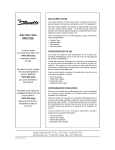
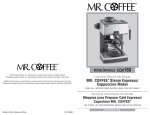
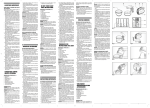
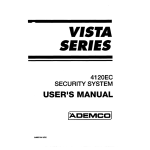

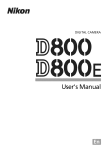
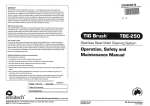
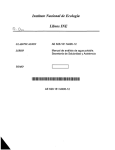
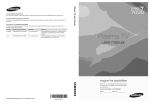
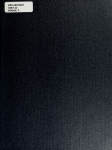


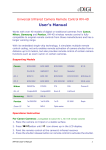

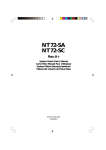
![APSコンパクトカメラの比較テスト結果[PDF形式]](http://vs1.manualzilla.com/store/data/006579504_2-d9432d3d449a5dc4af3b56ecb47906d5-150x150.png)

